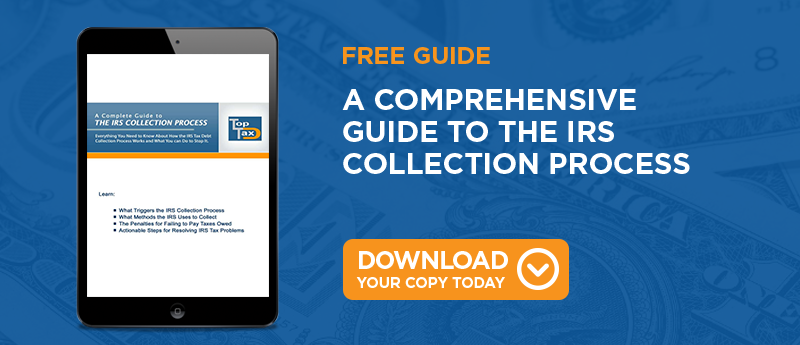
Owing money to the IRS can put a shadow over your everyday life. This tax debt may cause you to worry that you will lose your assets or experience financial difficulties if you are unable to pay what you owe up front.
Rather than carry around this burden, you may want to pay it off as soon as possible with your available line of credit. Before you charge it, however, you should understand the benefits and pitfalls of paying off your IRS obligation using your credit card.
The Advantages of Using Your Credit Card to Pay Your Tax Debt
The most obvious reason for using your credit card to pay your tax bill centers on satisfying your debt immediately. As long as you have the credit limit available, you can charge your entire bill to your card, bringing your IRS obligation down to zero.
By paying off the debt with credit, you also transfer your balance to your card's issuer. It may seem less nerve wracking owing this amount to a credit card bank than the IRS. You know that you can make monthly payments without the fear of the issuer demanding access to your assets like your bank account or investments.
In fact, the credit card bank may actually reward you for transferring this debt by allotting you extra flier miles or a couple of free hotel stays. You may find the idea of getting a few perks in exchange for wiping out your IRS bill to be attractive.
Finally, you can pay with your credit card using several convenient options the IRS makes available specifically for this payment option. You can pay with your card using the:
- Phone
- Internet
- Third-party tax preparation software
- Mailed invoice
You should note that the IRS legally cannot pay any credit card transaction fees. As such, it outsources collection of credit card payments to third-party contractors. Some of the contracting payment websites utilized by the IRS include:
You can expect to pay a convenience fee of 1.87 percent if you utilize PayUSATax.com or Pay1040.com. OfficialPayments.com/fed charges 2.35 percent for credit card payments made online. Likewise, if you use a third-party tax prep service like H&R Block or TurboTax to pay your bill you can also expect to be charged a fee, typically around two percent of your total payment amount.
Disadvantages of Using a Credit Card to Pay Your Tax Bill
Along with paying convenience fees, other disadvantages exist for charging your IRS debt to your card. First, by transferring your debt to your card you will be charged an APR of around 14 percent, if not higher, on the principle. This interest is higher than what the IRS would have charged you each month for carrying a balance with it. The IRS charges five percent for each month that your debt is not paid in full.
Second, while any rewards offered by your credit card may seem generous, they may be worth less than the fees you are being charged by the payment collection services. For example, most credit card companies give rewards that value around one percent of what you owe. When you are paying close to two percent or higher in fees, you actually are not gaining anything significant.
Options Other than Credit Card Use
Given these disadvantages, you may wonder what other options are available to you to help you manage and pay off your IRS account. One of the best options available to you if you lack the money upfront or want to avoid using plastic to pay your debt would involve setting up a payment agreement.
A payment agreement with the IRS has benefits that include:
- Affordable payments set up to reflect your monthly income
- Lower interest rates
- Staying in IRS' good graces without fear of asset seizure or wage garnishment
- Automatic and free bank withdrawal from your checking or savings account each month.
The IRS is always open to payment agreements if you genuinely cannot pay what you owe and you are not willing to charge it to a credit card. This option lets you settle your debt in a fair and legal manner
It may be tempting to pull out your credit card and wipe away your IRS debt. Before you charge it, you should learn about the pros and cons of this method of settling your tax obligation to the government.




